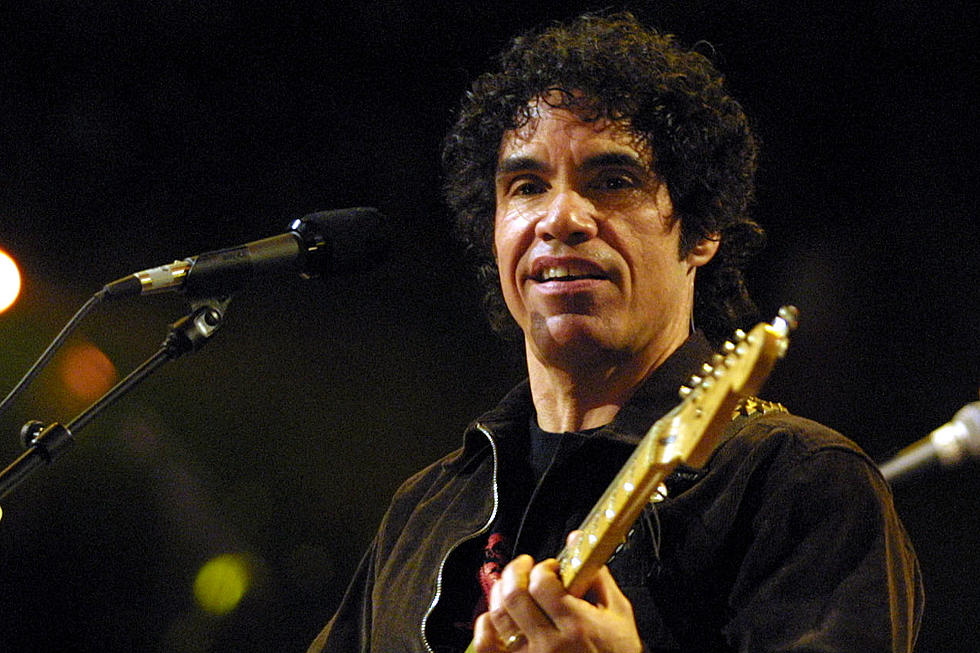
Everything You Need to Know About Norman Greenbaum and ‘Spirit in the Sky’
Norman Greenbaum's 1969 hit "Spirit in the Sky" is, along with Nena's "99 Luftballons" and Lipps, Inc.'s "Funkytown," one of the definitive one-hit wonders of the rock era. For decades it's been a ubiquitous presence on classic-rock radio, in commercials and in movies. But how much is really known about both the song and its creator?
Born in Malden, Mass., on Nov. 20, 1942, Greenbaum was raised in an observant Jewish household and developed an interest in folk music at a young age. Upon moving to Los Angeles in 1965, he formed Dr. West's Medicine Show and Junk Band, who reached No. 52 in 1966 with a novelty song called "The Eggplant That Ate Chicago." After their breakup, he moved to San Francisco and began a solo career.
But what caused a nice Jewish boy with a background in folk music to write a fuzz-drenched song about Jesus? Not surprisingly, it might have come from an unusual source. "I was taken by [country star] Porter Wagoner," he once told the Examiner. "He’d wear these snazzy coats that he’d got from Nudie’s in North Hollywood and had a big pompadour. And he was kind of interesting. He had a show on TV and I’d watch it. One day he’s singing this song about a preacher and I said, 'Wow, that’s a little out of my league to write about preachers and stuff, but I can do it.' And that’s what I did."
The words to "Spirit in the Sky" took, by Greenbaum's estimation, 15 minutes to write. But his lack of knowledge about an essential component of Christianity -- that everybody is born a sinner -- caused some controversy with the song's third verse. "I still get strange letters from heavy Christians that find it appalling that I said, 'Never been a sinner / I never sinned,' he explained. "I’m truthful in writing back. I say, 'You know, I flubbed that part. So what are you going to do?””
But as easy as the lyrics came, the music took considerably longer. "I kept changing it," he told Classic Bands. "I was never satisfied. ... It's based on an old standard blues riff. However, I changed it. It's hard to explain." Greenbaum described how he got the distinct tone on his Fender Telecaster, which had a fuzz box built into its body. "I knew this guy, and he knew electronics. So, rather than having a pedal and everything, he just put this little transmitter thing right into the guitar with an on-off switch. Somehow the sound has never been duplicated. Bands write me all the time, 'God, I've been trying to play that song for years and I can't even come close.' Interesting."
With its handclaps, Russell DaShiell's lead guitar and the gospel harmonies from the Oakland-based Stovall Sisters, "Spirit in the Sky" resonated with music fans. Released in late 1969, it peaked at No. 3 in April 1970 and sold two million copies. But Greenbaum's other singles and albums failed on the charts. He eventually got dropped from Reprise Records, and attempts to find a new label failed because he was unwilling to return to the distinctive sound of "Spirit." Frustrated, he gave up music, lost all his money and went to work as a cook in Northern Cailfornia.
“I thought, ‘Well, that’s it,’ ” Greenbaum told the New York Times. “I was broke. What else could I do? You can’t write another ‘Spirit in the Sky,’ so I’ll do this. I worked my way up from cooking hamburgers to being a sous chef to being a kitchen manager writing menus and cutting meat. I was okay with it.”
His fortunes changed in 1987 when he allowed "Spirit" to be used in the 1987 film Maid to Order. Since then it's been used in more than 30 major movies -- including Ocean's 11, Apollo 13 and Guardians of the Galaxy -- and featured in numerous national television ad campaigns. The Times article noted that every time the song is placed in a high-profile slot, Greenbaum receives at least $10,000, which affords him a two-bedroom apartment in Santa Rosa, Calif.
"Well, it’s not like it’s made me rich,” he said. “But because of ‘Spirit in the Sky,’ I don’t have to work. So in that sense, it’s a comfortable living.”
See the Top 100 Albums of the '60s
The 10 Worst Rock and Roll Hall of Fame Snubs
More From Ultimate Classic Rock









